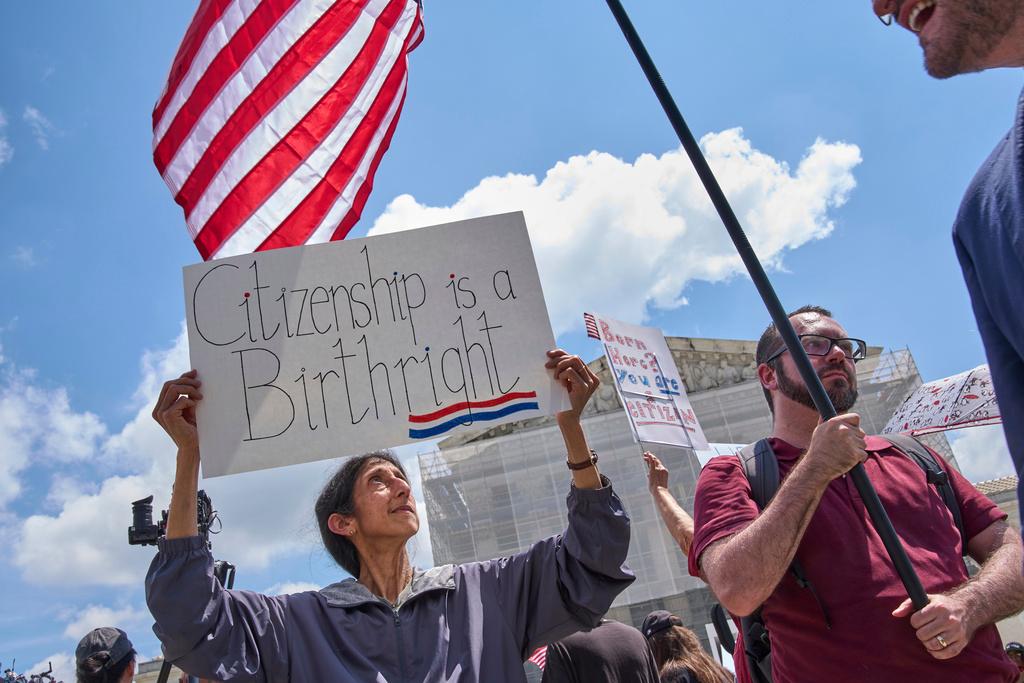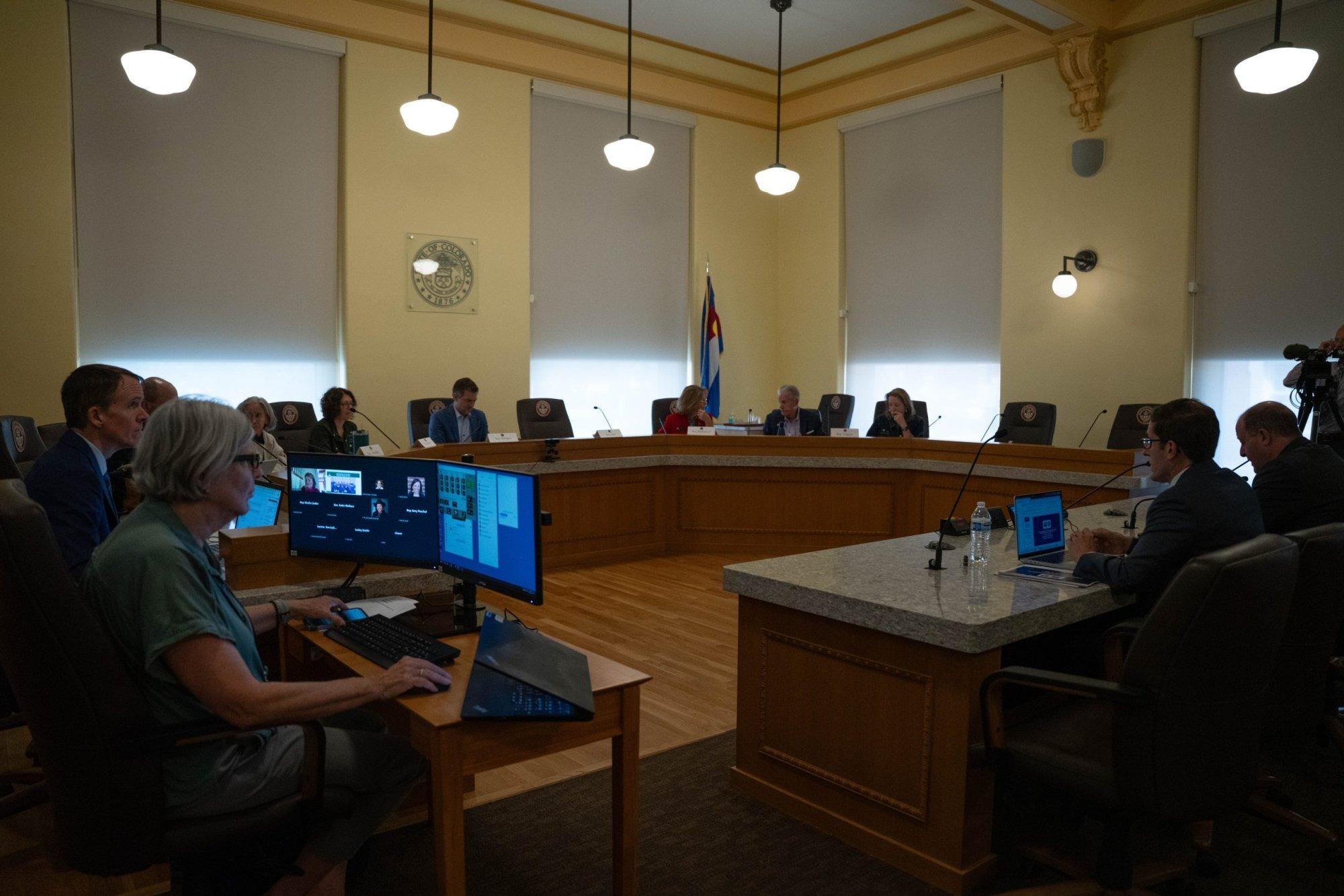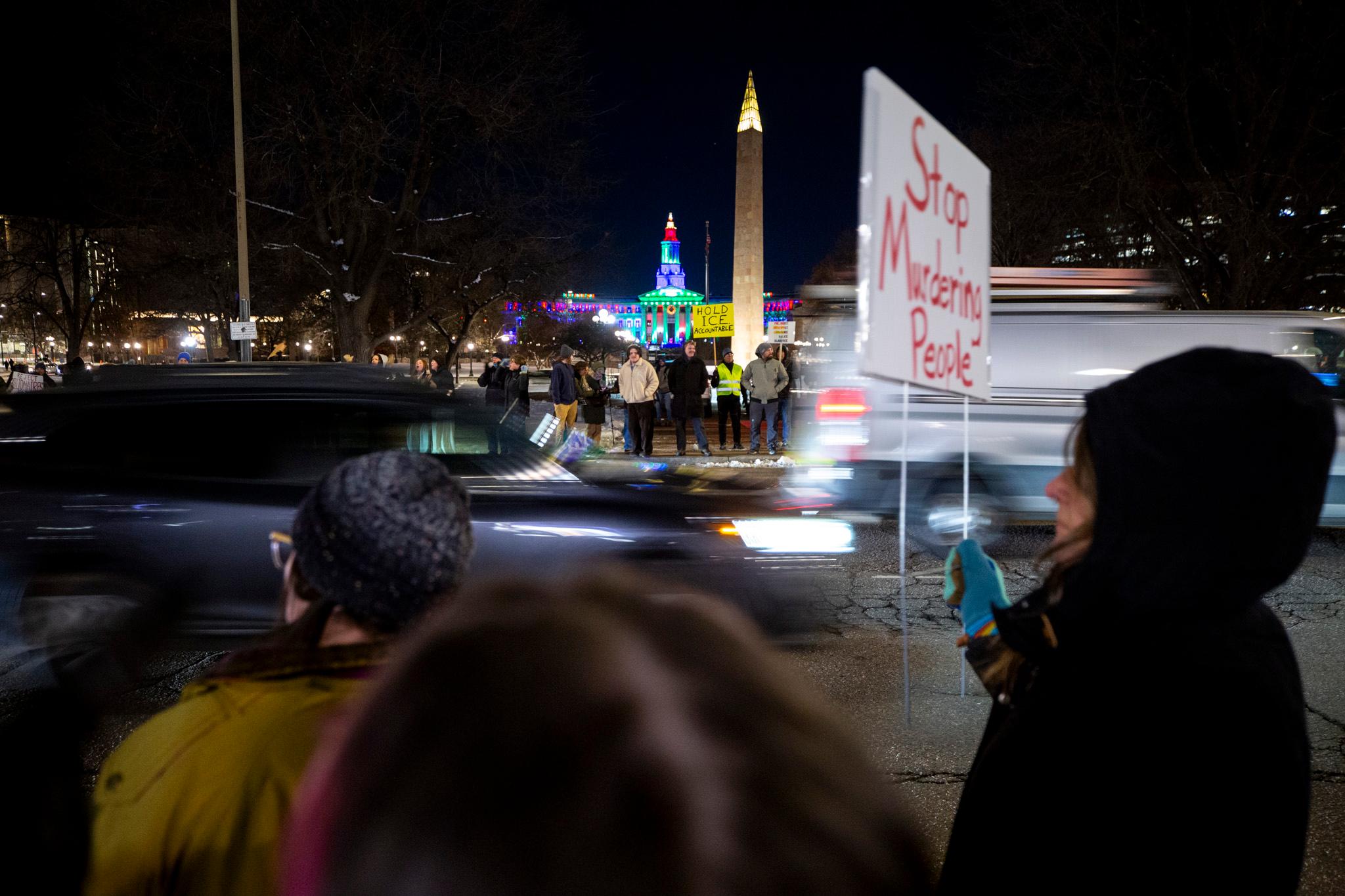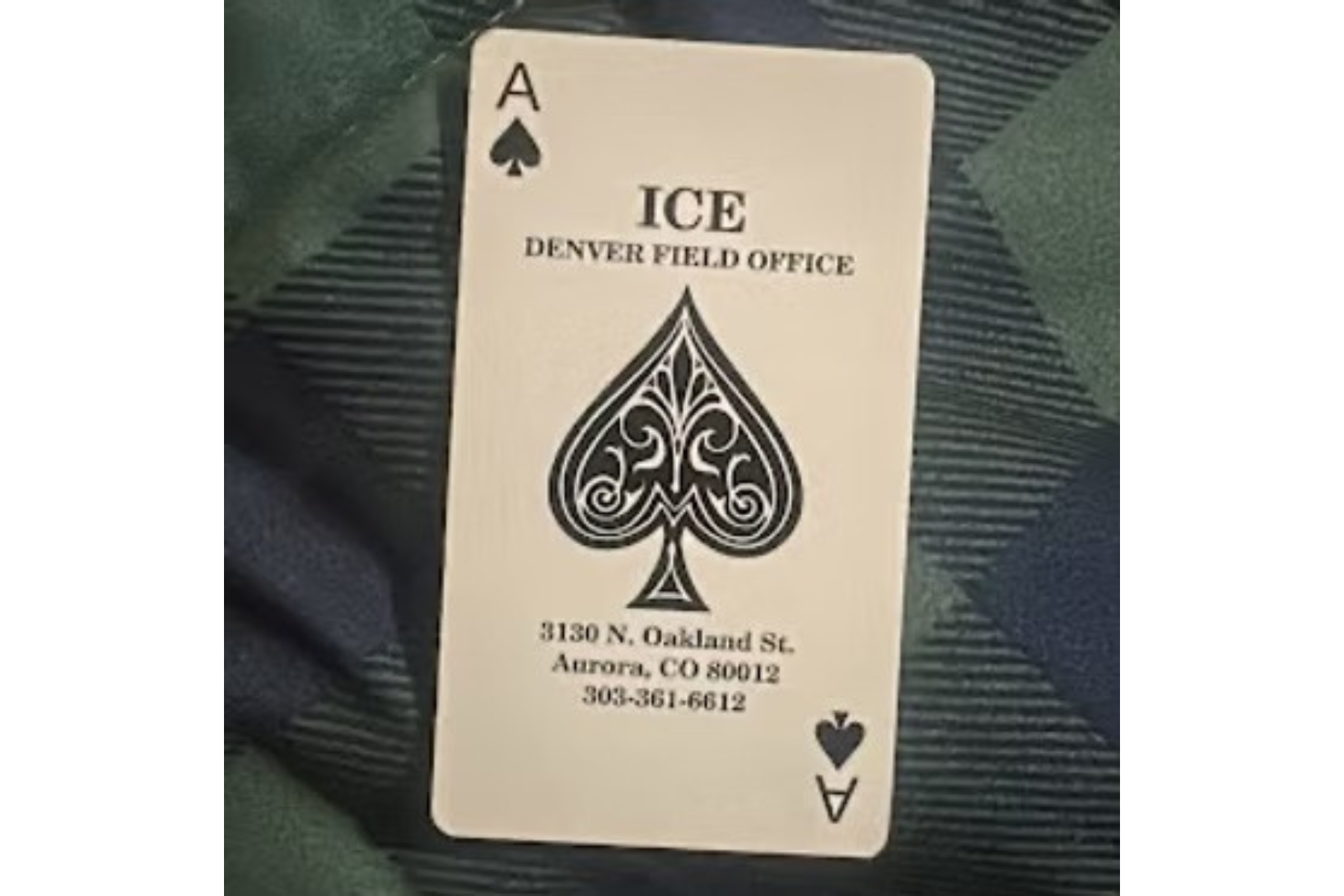
Coloradans remain insulated from an executive order ending birthright citizenship, at least for now, says Attorney General Phil Weiser.
“Coloradoans should know you're protected and if people are born here in Colorado, they still will benefit from birthright citizenship,” Weiser said.
Weiser spoke with Colorado Matters Senior Host Ryan Warner about the implications of the court’s opinion on Trump v. Casa, which dealt with a lower court’s ability to issue a nationwide halt to the Trump Administration’s order ending birthright citizenship.
In a 6-3 decision, the U.S. Supreme Court curtailed the use of so-called ‘universal injunctions’, wherein a federal judge at a lower court can halt an executive or legislative action nationwide while court proceedings play out.
The tool has drawn criticism in recent years given its use to hinder actions from Republican and Democratic administrations. In this case, the injunction applied to an executive order from the Trump Administration ending birthright citizenship — an element of the Fourteenth Amendment that ensures citizenship to anyone born in the United States.
Weiser discussed what the order means for Colorado, and what questions he has looking ahead.
This interview has been edited for length and clarity.
Warner: Okay. 6-3 decision that says universal injunctions like the one that halted this executive order likely exceed the equitable authority that Congress has granted the federal courts. Now the court did not take head on the question of birthright citizenship, but I gather there are implications, so let's start outside the realm of federal court power and begin with the daily lives of Coloradans. What, if anything, changes about people's citizenship today?
Weiser: Colorado is a party to this case and that means we are getting a specific injunction for the people of Colorado. In that sense, Coloradans should know you're protected and if people are born here in Colorado, they still will benefit from birthright citizenship. We have a preliminary injunction affecting Colorado that will prevent this executive order from going into effect. What remains to be seen, and there's some follow up proceedings, what happens to Wyoming and will people from Wyoming want to come to Colorado to have babies born here so they can benefit from birthright citizenship?
That might not be the case in Wyoming where the executive order could be allowed to go into effect. We don't know if that's going to happen. There's more proceedings at the district court. It's possible the states as plaintiffs will be given some special abilities to seek universal injunctions. That's going to remain to be seen.
Warner: All right, so Colorado is covered, still, by the injunction. You do not need to seek an additional one, correct?
Weiser: Well, the court may reconsider the injunction, but it's going to be a procedural move. We've won the merits case. If anything gets narrowed — and this remains to be seen if this will happen — it would be only the states who are suing, including Colorado, would have the benefit of the injunction. My argument, and this is going to get heard by a lower court, is that it would be a mistake because it would be a recipe for chaos to have Colorado be covered by this injunction, but not Wyoming because Wyoming's not suing, and have the chaotic questions about if someone's born in Colorado but lives in Wyoming, are they a birthright citizenship or not?
Warner: If I am the governor, if I am the state legislature, is there anything I need to do today?
Weiser: Colorado, because I'm committed to fighting for the rights of birthright citizens and to protect the 14th Amendment, is protected. Sadly, in other states — Utah, another example — that's not necessarily the case and I recognize the fear and uncertainty. This would be a chaotic and challenging situation to have. Some states have constitutional rights protected, but not in other states. This opinion is incomplete in terms of what it's going to mean. There's still work to be done. As we go back to the district court, we're going to work hard to protect all Americans to have the benefit of what the Constitution provides, which is birthright citizenship, and we'll see what we can come up with because if it is curtailed, it's going to be a recipe for chaos.

Warner: I do understand the justices bought folks essentially a month, 30 days to figure some of this out, so I gather that month window is critical to you and to others. Is that your understanding?
Weiser: Yes. Within the next month, we'll be back in the district court and we'll be able to make the case both that the states as plaintiffs have the ability to get a universal injunction in the unique circumstance of this case — that was an argument we made at the Supreme Court. The Supreme Court didn't rule on it. They've left that issue for the lower courts. Even if they don't give that to the states as a universal injunction, I'm very confident Colorado as a party will get an injunction for Colorado, but that's just going to raise the question: How do we implement this type of system where constitutional rights are so dependent on what state you live in and whether your attorney general stands up to the constitution?
Let me give you an example, Ryan, of what could happen: What if a president said, ‘I'm doing an executive order that says any ownership of any firearm is now not protected by the Second Amendment and we're going to have federal agents ready to confiscate them.’
That would be blatantly unconstitutional under the Second Amendment, but if a president said that was what the president was going to do, it would then — one possible scenario — depend on what state you lived in, if your AG defended your constitutional rights, whether or not they'd be protected. Blatantly unconstitutional actions, whether it's under the 14th Amendment, the Second Amendment, the First Amendment, shouldn't be susceptible to going into effect based on whether or not an attorney general from a state is taking action. We believe states should be able to stop it across the board and that's why we're fighting for universal injunction in this case.
Warner: Listen, this is a 100-plus page decision. It's not been out for an hour yet. What questions do you have? What is unanswered for you this morning?
Weiser: The biggest one, Ryan, is the one I've emphasized, which is what's the ability of states — as a coalition — to get a universal injunction? This case around the effort to undermine birthright citizenship I see is a poster child for why you would want a universal injunction, and it doesn't matter what the blatantly unconstitutional action is, it doesn't matter who the president is. This is a principle that should be how we in the United States — how courts — check the power of potential lawless actions by the executive. And this executive order is flagrantly unconstitutional. It overrules 100 years-plus of rulings by the court.It seeks to overrule the text of the 14th Amendment. That's why we're in court. The question that we're going to have to now, within the next 30 days, figure out is: Are Colorado and other states who are suing the only ones who get to protect the constitutional rights of our citizens?
I sure hope not because to have a constitutional right basically in Colorado but not in Wyoming or in Utah, begs the question, if you are born in Colorado and you have this right and then you move to that other state, do you lose it? What if you're born in the other state and you move here? Can you somehow get it?
I don't know how this would be administered and at the oral argument in this case, the federal government was unable to explain how this system would be administered. This is a haphazard, dangerous effort. We believe it has to be stopped. That's why we're fighting it.
Warner: Let me just read from the opinion though, to push back there:
“By the end of the Biden administration, we had reached a state of affairs where almost every presidential act was immediately frozen by a federal district court. The trend has continued during the first a hundred days of the second Trump administration, district courts issued approximately 25 universal injunctions. As the number of universal injunctions has increased, so too has the importance of the issue.”
How do you respond? I mean, let me just say as well, Democrats have had issues with these types of injunctions. I'm thinking in 2023, for instance, of a federal judge in Texas who issued a nationwide injunction against an abortion medication.
Weiser: There are cases where efforts to put a universal injunction into effect are problematic. This case is the opposite of that problem. This case is the reason why you would want a universal injunction. In the cases I've brought, AmeriCorps for example, we're challenging the dismantling of and the withholding of funding. We're only challenging for states who are in our coalition. We're not seeking universal injunction. We're saying if you're an effective state and you're concerned, join our coalition, fight for your state. Some states haven't brought that case and AmeriCorps funding and the AmeriCorps program is not active in those states, so this is not something that we try to do in every single case. It's something that happens in particular cases like the one we're talking about now where without a universal injunction, the consequences will be chaotic, severe, and people are going to really be harmed.
Warner: Okay. I'm grateful to understand that you're making a distinction there. Mr. Attorney General, do you expect the issue of birthright citizenship itself squarely to come before the US Supreme Court?
Weiser: This is a very important point, Ryan. In this case, the merits were not addressed. It was only the authority of courts that involve these so-called universal injunctions. I think if there is a split among circuit (courts), so we're going to have this case get litigated in multiple circuits. And, if one circuit doesn't rule the way that we're arguing — that this is a blatantly unconstitutional action — at that point, the Supreme Court will very likely have to step in. Even if the circuit courts all rule our way — and all the courts that have ruled on this so far ruled our way — it's possible the Supreme Court will want to step in, but they won't have to step in. So if I had to bet, I would say it's more likely than not that for one reason or another the Supreme Court takes this issue on.
I very much believe on the merits that we have a winning case based on the text of the 14th Amendment, based on longstanding precedents. We aren't going to take anything granted. We'll be fighting hard. It's very important that this principle is one that we honor. If you're born here, you're an American citizen. That's what it says in section one of the 14th Amendment.
- Birthright citizenship is ‘protected’ in Colorado despite Supreme Court ruling, AG says
- Supreme Court limits nationwide injunctions in birthright citizenship order
- ‘If you’re born here, you are a citizen.’ Colorado’s Attorney General on why he’s suing President Trump over birthright citizenship
- Colorado Attorney General joins lawsuit challenging Trump’s order on ending birthright citizenship









